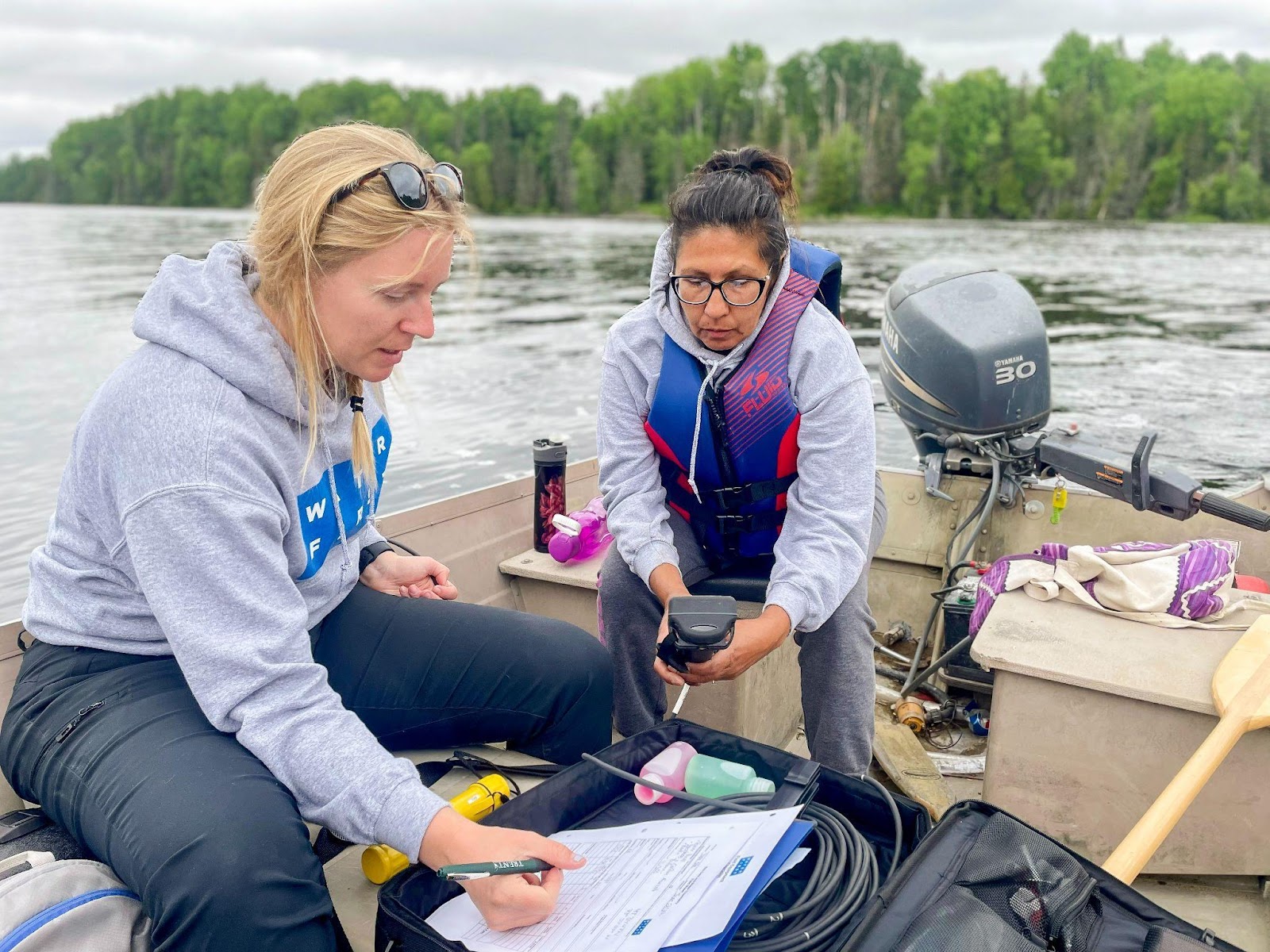Non-profit’s inaugural Environmental Water Internship will provide environmental certifications to 10 entry-level professionals.
Sault Ste. Marie, ON – A brand new opportunity for Indigenous learners will launch on July 8, 2024 as Water First Education & Training Inc. and Mamaweswen, The North Shore Tribal Council (NSTC) begin an environmental water training and education internship program. The 15-month internship will see 10 participants from six communities take part in the program, which can lead to Water First certifications in Water Quality, Environmental Data, and Fish Conservation.
“The opportunities for young people coming out of these types of programs are huge. There are many communities and organizations looking for employees, particularly within the water fields. And it may also be a stepping stone for them to go into higher education to learn more about science and impacts on the environment,” shares Allan Moffatt, Chief Executive Officer of Mamaweswen, The North Shore Tribal Council. “Interns will be out in the rivers on their traditional territories practising environmental stewardship, monitoring fish habitats and water quality. This really fits in with many of our communities’ long term plans for environmental sustainability.”
Indigenous communities across Canada face serious and complex clean water challenges. With a goal of building local capacity, the Environmental Water Internship will help keep highly-trained and skilled individuals in the community, monitoring water systems and potential food sources.
Water First’s Environmental Water Program delivers educational workshops and technical training in collaboration with Indigenous communities, based on collaborative consultation and assessment of community priorities. Together with community partners, these programs strengthen local capacity for managing water and fish resources and the impact of industry and climate change. To date, Water First has delivered over 80 Environmental Water workshops.
“This is a brand-new internship program for Water First. To be able to expand our training opportunities and fill a gap in the water science field was really important to us,” says Water First Executive Director and Founder John D. Millar. “Past partnerships with North Shore Tribal Council have been really successful, so we’re thrilled that we could roll out the Environmental Water Internship with North Shore communities. Delivering this program together means an even greater opportunity to support community capacity building and see more trained, skilled individuals able to continue working in water and fish resource management right at home.”
The Environmental Internship is modelled on Water First’s highly successful Drinking Water Internship Program, which has certified more than 45 Indigenous participants since launching in 2017. With a focus on collaboration, Water First’s program model ensures that each internship is tailored to the specific landscape and safe water needs of the community in which the internship is taking place. “Ultimately,” says Millar, “Water First Graduates with skills and certifications in the water sciences can contribute technical capacity to their community after completing the program.”
Participants in the Environmental Water Internship work alongside a network of technical trainers, community members and Water First program alumni. To remove as many barriers to success as possible, participants are offered learning supports throughout the internship, including laptop computers, phone allowance, one-on-one mentoring and child care.
For more information on Water First’s Environmental Water Internship, and for opportunities to support programs that help address water challenges in Indigenous communities across Canada, visit https://waterfirst.ngo/what-









